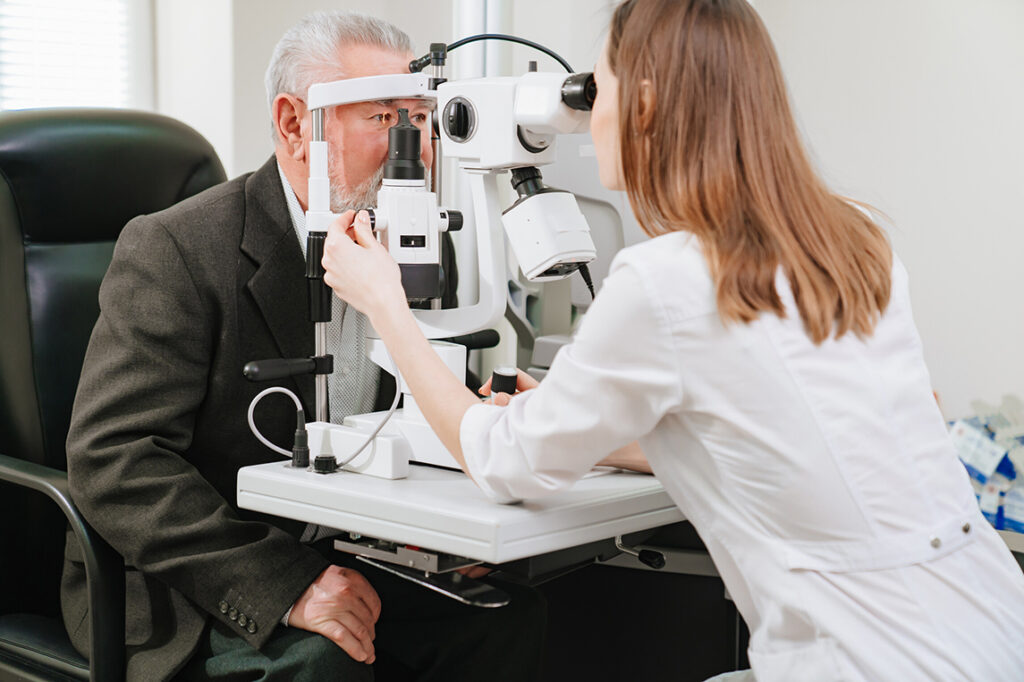
A note on the title: Bad News does not Get Better with age. This is a lesson I learned from the corporate world supplying critical life-saving products to the US and NATO military. When you have a delay in production due to, say, a supplier not delivering parts in time for you to make your delivery, waiting to inform your customer for days or weeks that you will be late does not help you.
WAITING to tell them does not make the bad news any better. Hence, Bad news does NOT get better with age.
The same applies to your health. Find out ASAP if you have something wrong. Waiting can kill you.
As I approach my seventh decade, I look around at those in my cohort, and I am shocked at the number of friends, family, and acquaintances who have developed debilitating illnesses, and many have already died.
Are you aware of the top 10 common causes of death in people between the ages of 40 and 90 years old? I was not, but I had a good feeling, and it was pretty spot on.
- Cardiovascular Diseases
- Cancer
- Chronic Respiratory Diseases
- Diabetes
- Alzheimer’s Disease and Other Dementias
- Kidney Disease
- Infections
- Liver Disease
- Unintentional Injuries
- Chronic Liver Disease and Cirrhosis
Keep in mind that this information is based on data available up to September 2021 and may not reflect the most current statistics. Also, the order of these causes can vary over time and by location. Here are the top 10 causes of death in this age group, along with the general source:
- Cardiovascular Diseases: According to the World Health Organization (WHO), cardiovascular diseases are a leading cause of death globally. [Reference: WHO – Cardiovascular Diseases]
- Cancer: Cancer is a significant cause of death worldwide, as reported by organizations like the American Cancer Society. [Reference: American Cancer Society – Cancer Facts & Figures]
- Chronic Respiratory Diseases: The Global Burden of Disease Study includes chronic respiratory diseases as a major cause of mortality. [Reference: Global Burden of Disease Study]
- Diabetes: The International Diabetes Federation provides data on the global impact of diabetes, including its role in mortality. [Reference: International Diabetes Federation – IDF Diabetes Atlas]
- Alzheimer’s Disease and Other Dementias: Organizations like the Alzheimer’s Association track data on Alzheimer’s disease-related deaths. [Reference: Alzheimer’s Association – Alzheimer’s Disease Facts and Figures]
- Kidney Disease: Chronic kidney disease’s impact on mortality is documented by health agencies such as the Centers for Disease Control and Prevention (CDC). [Reference: CDC – Chronic Kidney Disease]
- Infections: Data on infectious disease-related deaths are often reported by public health agencies, such as the CDC and the World Health Organization. [References: CDC – Infectious Diseases, WHO – Infectious Diseases]
- Liver Disease: Liver diseases’ role in mortality is highlighted in health reports from organizations like the American Liver Foundation. [Reference: American Liver Foundation – Liver Disease]
- Unintentional Injuries: The CDC provides statistics on accidental injuries and their contribution to mortality. [Reference: CDC – Unintentional Injuries]
- Chronic Liver Disease and Cirrhosis: The National Institute on Alcohol Abuse and Alcoholism (NIAAA) discusses liver diseases and their consequences, including mortality. [Reference: NIAAA – Cirrhosis and Liver Disease]
The interesting thing is, these top 10 change in the order of prevalence between our teen years and each 10-year cohort after that as we age. I will have a post on this with an animated graphic that will show this as we age.
All but #7 Infections(for the most part) and #9 Unintentional Injuries(Murder, auto accidents, acts of terrorism, etc.) are what I call “ Diseases of Choice”.
In my definition of “Diseases Of Choice”, are those that are preventable with proper diet, exercise, nutrition, and timely medical care.
Now, I am sure anyone can come up with exceptions to the above statement, like heredity disposition, environmental conditions, etc.….. but that is not the point. For the most part, all of these are either preventable or highly controllable.
We choose to eat processed foods. We choose to eat grains and sugars. We choose not to be active. We choose not to get enough sleep. We choose to party too much/too late.

Now some of these things can be economically driven and you may not have total control over them. But for the most part, we get the final word: no one to blame but ourselves.
We have choices in what we eat. Make the right choice.

Because of my extensive medical research background and time working in surgery, orthopedic implant design and development, and medicine in general, I have a different take on this getting older thing.
I started getting colonoscopies when I turned 40 years old. With my family history and seeing what colon cancer looks like from the inside during countless tumor removals, you tend to look at the pros and cons differently.
36 to 48 hours of liquid diet and the prep 12-ish hour before the procedure, happy juice during the procedure so you don’t remember shit, it really is nothing compared to getting 3 feet of your colon ripped out and pooping in a bag attached to your abdomen for the rest of your life, which may be shortened due to the cancer having spread through your body. Colon specimen cross section showing cancer and polyps are shown below for emphasis.

Sounds like fun, doesn’t it? You cannot imagine what a colon filled with rock-hard cancerous tumors the size of your fist feels like.
I have had a colonoscopy at least every 3-5 years since then. Yes, they found polyps. Many of them over the years. But nothing was “hot,” and every polyp was removed “early before they became a problem. So, there is no telling what that polyp from 1998 would have grown up to be if left alone….
Ok, back to the point of this piece.
Start by getting a yearly medical checkup with your primary care physician. Most insurances and Medicare cover yearly physicals with ZERO out-of-pocket. They cover all of the lab testing as well.
It is FREE or a small copay…. The cost of fufu coffee 3 times a week.
One thing I have learned from being in the corporate world for so long:
“Bad News Does Not Get Better With Age”
It makes no sense NOT to go to the doctor so you don’t find out bad news. You are gambling with the most essential thing you have: your health.
So maybe you have something terrible, like the pain in your hip joint: are the surfaces degrading, and you think a hip replacement is your only option to restore function? Now, knowing this and choosing NOT to have the surgery, it’s totally fine. Your choice.
But what if that hip pain” you just knew” needed surgery turned out to be something simple?
When you went to the doctor, you found out it was both sciatic nerve pain and misalignment in your spine, and a chiropractor can handle it in a few weeks and never go under the knife.
How dumb would you feel if you went for all those years with a hip issue that was correctable?
See my point?
Note the slick segway:
Get yearly vision checkups well. These are covered yearly as well in many plans.
They can find issues early, too, like cataracts (I have a mild case of them), macular degeneration, glaucoma, and more. There are many things that can rob you of your vision.

How bad would it suck to have great vision for 50+ years and go blind in 3 years? It would suck pretty bad, right?
What if that condition was like glaucoma that is totally correctable? I think it would totally suck big time that your legally blind status could have been a nonissue IF you had regular check-ups.
The frequency of eye examinations for individuals over the age of 50 can vary depending on their eye health and any preexisting conditions. However, as a general guideline, it’s recommended that adults aged 50 and older have a comprehensive eye exam at least every two years.
However, if you have certain risk factors or existing eye conditions, you may need more frequent eye exams. Some factors that may warrant more frequent eye exams include:
1. **Age-related eye conditions:** As you get older, you become more susceptible to age-related eye conditions such as cataracts, glaucoma, and age-related macular degeneration (AMD). If you have any of these conditions, your eye doctor will likely recommend more frequent check-ups.
2. **Family history:** If you have a family history of eye diseases or conditions, you may be at a higher risk, and your eye doctor might recommend more frequent exams.
3. **Medical conditions:** Certain medical conditions like diabetes or high blood pressure can increase the risk of eye problems. People with diabetes should have an annual eye exam because they are at higher risk for diabetic retinopathy.
4. **Medications:** Some medications can have eye-related side effects, so if you’re taking medications that can affect your eyes, your eye doctor may suggest more frequent monitoring.
5. **Changes in vision:** If you notice any changes in your vision, such as blurred vision, difficulty seeing at night, or changes in your peripheral vision, it’s important to see an eye doctor promptly, regardless of your age.
Remember that these are general guidelines, and the frequency of eye exams should be discussed with your eye care professional. They can provide personalized recommendations based on your individual health, risk factors, and any existing eye conditions. Regular eye exams are essential for maintaining good eye health and detecting any issues early when they are more easily treatable.
So the point is again,
“Bad News Does Not Get Better With Age”
Get very friendly with your Primary Care Physician, and get those annual physicals before the end of the year.
Get scheduled for a colonoscopy screening NOW.
Get your eyes checked every year.
Go to the Dentist yearly.
Pick a new healthy habit. Yoga, walking, painting, learning a musical instrument, photography or learning how to fly a plane. Seriously.
ANYTHING to get you learning new things, moving outdoors, working on your health, and, above all, stimulating your mind.
A recent trip to my PCP showed “everything in the green”, but I had a nagging feeling I was missing something due to muscle mass loss and body fat% increase over the last 7 years.
All blood tests were perfectly normal on ZERO medications. But I just had a feeling…… After insisting on a specific form of a diagnostic test, we discovered something was indeed missing and vital to my overall health. More on that in future posts.
In the end, it is your choice on how you approach the final stages of your existence here. I am on a mission to SLOW the Down Hill Slide as much as practical.
I can honestly say that this mission is fun. The progress I am making is keeping busy exercising and optimizing what I have.
My Doc mentioned that I was in the “normal range” for ALL of my testing/blood work. I told her I was not satisfied with being in the “Normal Range”, I was shooting for Optimal.
We shall agree to disagree.
Leave a Reply